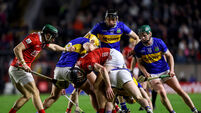Iranian opposition leader calls for rally
Iranian opposition leader Mir Hossein Mousavi has issued a direct challenge today to the country’s supreme leader and cleric-led system, calling for a mass rally to protest disputed election results and violence against his followers.
A crackdown on dissent continued, with more arrests of opposition figures reported, and the country’s most powerful military force – the Revolutionary Guard – saying that Iranian websites and bloggers must remove any materials that “create tension” or face legal action.














